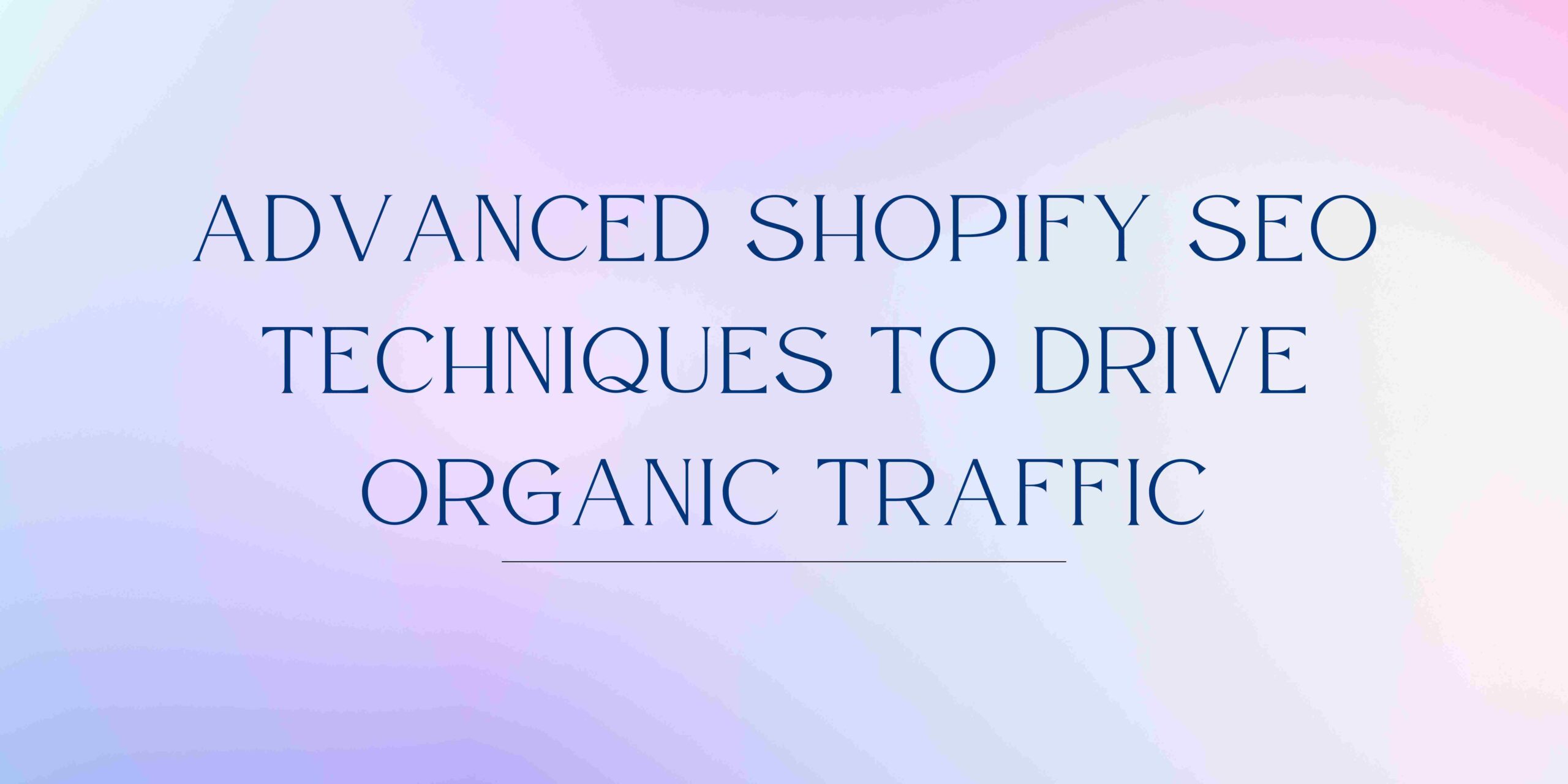In the competitive world of e-commerce, mastering SEO (Search Engine Optimization) is crucial for attracting organic traffic to your Shopify store. With effective SEO strategies, you can enhance your visibility in search engine results and ultimately increase sales. Here are some advanced techniques tailored for Shopify to boost your SEO game:
List of the Top Advanced Shopify SEO Techniques to Drive Organic Traffic
1. Optimize Product Pages for Keywords
Keywords are the foundation of SEO. Conduct thorough keyword research using tools like Google Keyword Planner or SEMrush to identify relevant keywords with high search volumes and low competition. Incorporate these keywords naturally into your product titles, descriptions, and meta tags to improve your page’s visibility.
2. Utilize Shopify SEO Apps
Take advantage of Shopify’s SEO apps like SEO Manager or Plug in SEO to automate optimization tasks. These apps can help you optimize meta titles, descriptions, image alt texts, and monitor your site’s SEO performance, saving you time and effort while improving your SEO efforts.
3. Enhance Site Speed
Site speed is a critical ranking factor for both desktop and mobile searches. Use Shopify’s built-in tools or apps like PageSpeed Insights to analyze and improve your site’s loading times. Compress images, leverage browser caching, and minimize JavaScript to ensure swift page loads, enhancing user experience and SEO performance.
4. Implement Structured Data Markup
Structured data markup, such as Schema.org markup, helps search engines understand your content better and display rich snippets in search results. Use Shopify apps or manually add structured data to your product pages, reviews, and FAQs to increase click-through rates and drive more qualified traffic.
5. Build High-Quality Backlinks
Earning high-quality backlinks from reputable sites is essential for SEO success. Create compelling content that naturally attracts links, such as informative blog posts, infographics, or product guides. Outreach to industry influencers or bloggers for collaborations or guest blogging opportunities to acquire backlinks organically.
6. Leverage Content Marketing
Content marketing plays a pivotal role in SEO. Create engaging blog posts, tutorials, customer testimonials, and videos related to your products or industry. Optimize each piece of content with targeted keywords and share them across social media platforms and relevant online communities to drive traffic and improve SEO.
7. Mobile Optimization
With a significant portion of internet users browsing on mobile devices, ensuring your Shopify store is mobile-friendly is imperative for SEO. Use responsive design principles, optimize images and fonts for smaller screens, and streamline checkout processes to provide a seamless mobile experience that enhances both user satisfaction and SEO rankings.
8. Monitor and Adapt with Analytics
Regularly monitor your Shopify store’s SEO performance using tools like Google Analytics and Shopify’s own analytics. Track key metrics such as organic traffic, bounce rates, and conversion rates to identify areas for improvement. Adapt your SEO strategy based on data insights to stay ahead of the competition and maintain steady growth.
By implementing these advanced Shopify SEO techniques, you can significantly boost your store’s visibility, attract more organic traffic, and ultimately increase sales. For further assistance in maximising your SEO efforts, consider consulting with an organic SEO agency that specializes in e-commerce SEO strategies.
Conclusion
Mastering advanced SEO techniques for your Shopify store is a powerful way to drive organic traffic and enhance your online presence. By optimising product pages, leveraging SEO apps, improving site speed, implementing structured data markup, building quality backlinks, engaging in content marketing, ensuring mobile optimisation, and using analytics to monitor performance, you can significantly boost your store’s visibility and attract more qualified visitors. These strategies not only improve your search engine rankings but also enhance user experience, ultimately leading to increased conversions and sales. Stay proactive with your SEO efforts and adapt to evolving trends to maintain a competitive edge in the e-commerce landscape.
FAQs:
Q1: How long does it take to see results from Shopify SEO efforts?
A: SEO is a long-term strategy, and results can vary based on factors such as competition, keyword difficulty, and the effectiveness of your implementation. Generally, you may start seeing improvements in rankings and organic traffic within a few months of consistent SEO practices.
Q2: How often should I update my Shopify store’s SEO strategies?
A: SEO is dynamic, and regular updates are crucial to adapt to algorithm changes, industry trends, and user behaviour. Review and adjust your SEO strategies periodically, ideally every few months, to maintain and improve your store’s SEO performance.
Q3: Can Shopify SEO apps replace manual SEO efforts?
A: Shopify SEO apps can automate certain SEO tasks and provide valuable insights. However, manual SEO efforts such as keyword research, content creation, and backlink building remain essential for a comprehensive SEO strategy tailored to your store’s specific needs.
Q4: What should I do if my Shopify store’s organic traffic decreases suddenly?
A: Analyse the potential causes such as algorithm updates, technical issues, or changes in competition. Review your SEO strategy, monitor analytics closely, and consider consulting with SEO experts to identify and address the root cause promptly.









